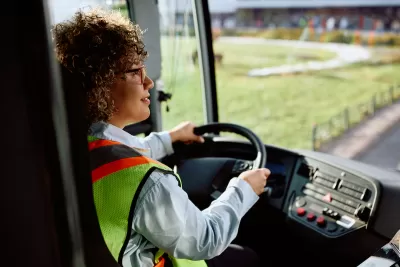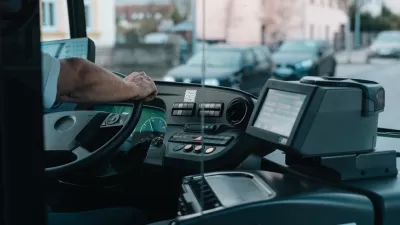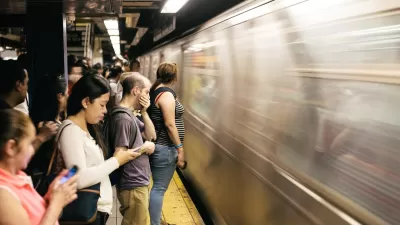Transit workers are being assaulted by riders at alarming rates, and inequity may be partly to blame.

“According to new research from the Urban Institute, America's transit workforce is experiencing an alarming increase in violent attacks, with incidents that resulted in a death or hospitalization climbing from 168 in 2008 to 492 in 2022,” reports Kea Wilson in Streetsblog USA. The study shows this may be in part due to larger issues such as poverty and inequality.
According to Lindiwe Rennert, senior research associate for the Urban Institute, “before disproportionately low-income and radically marginalized passengers even arrive at a bus or a train stop, they're carrying the weight of an unjust and violent society. And once they arrive, those indignities are often mirrored in the transit experience itself, including long waits at unsheltered stops with no seats, steep fares they can't afford, police violence if they're unable to pay, route maps, schedules, and services that weren't designed with their actual needs in mind, and a universe of other frustrations that can all too easily boil over.” In other words, the violence is often a result of the broader “rampant inequality that plagues riders,” or “how the public is lashing out from other inefficiencies.”
While these issues require solutions far outside the scope of transit agencies, Rennert says “improving service can be a ‘first step’ to calming transit riders’ frayed nerves, as can removing fares that often become a flashpoint for an assault.” Other suggestions include “physically separating drivers from passengers in clear-walled compartments, taking the burden of fare collection off of operators by enlisting ambassadors or eliminating fares entirely, and providing workers with de-escalation training to diffuse violent situations.”
FULL STORY: The Real Reason Assaults Against Transit Workers Are On The Rise

Maui's Vacation Rental Debate Turns Ugly
Verbal attacks, misinformation campaigns and fistfights plague a high-stakes debate to convert thousands of vacation rentals into long-term housing.

Planetizen Federal Action Tracker
A weekly monitor of how Trump’s orders and actions are impacting planners and planning in America.

In Urban Planning, AI Prompting Could be the New Design Thinking
Creativity has long been key to great urban design. What if we see AI as our new creative partner?

King County Supportive Housing Program Offers Hope for Unhoused Residents
The county is taking a ‘Housing First’ approach that prioritizes getting people into housing, then offering wraparound supportive services.

Researchers Use AI to Get Clearer Picture of US Housing
Analysts are using artificial intelligence to supercharge their research by allowing them to comb through data faster. Though these AI tools can be error prone, they save time and housing researchers are optimistic about the future.

Making Shared Micromobility More Inclusive
Cities and shared mobility system operators can do more to include people with disabilities in planning and operations, per a new report.
Urban Design for Planners 1: Software Tools
This six-course series explores essential urban design concepts using open source software and equips planners with the tools they need to participate fully in the urban design process.
Planning for Universal Design
Learn the tools for implementing Universal Design in planning regulations.
planning NEXT
Appalachian Highlands Housing Partners
Mpact (founded as Rail~Volution)
City of Camden Redevelopment Agency
City of Astoria
City of Portland
City of Laramie





























